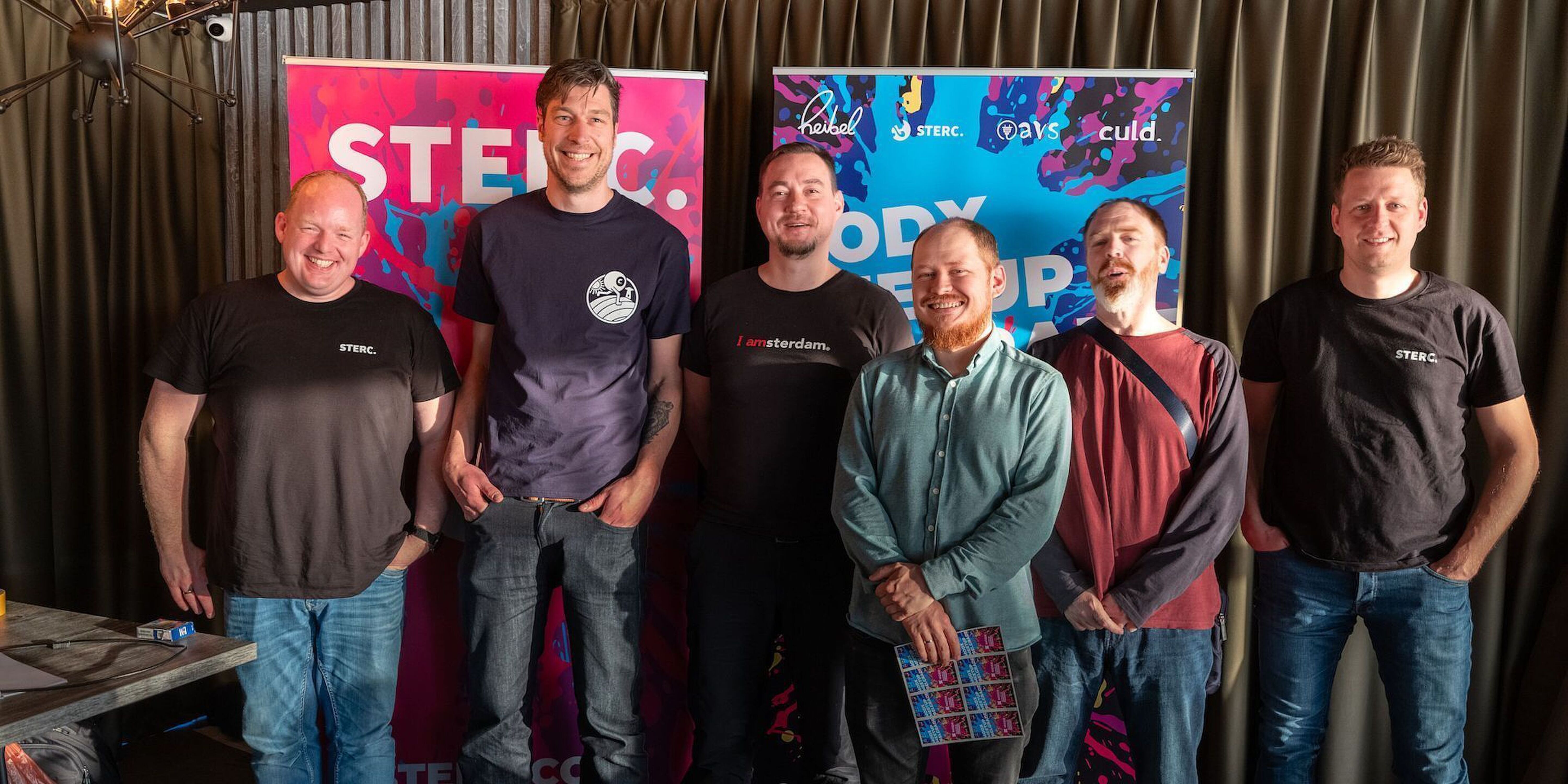Looking back at the MODX meetup in Belgrade + video.

Our local guy Sinisa Vrhovac introduced us to Belgrade during his first MODX meetup we organized there! This was the perfect opportunity to see our MODX colleagues from Russia again in real life and also meet many new and familiar MODX fans from Belgium, Serbia and Switzerland. In six talks, we shared our knowledge of MODX, gained new experiences and discovered how to use MODX even better. Find out what we all learned below. Want to watch the entire meetup again? You can do that too: https://youtu.be/CETrqOBz9-4

Talk 1:Build your customer base with standardised MODX websites and web shops.
Gerhard de Vries took us through their standardised MODX product from Heibel. Most websites cost too much for SMEs. By working with a fixed set of content blocks and making adjustments in style and functionality for each customer, they have already delighted more than 400 customers with a beautiful website or webshop.

Talk 2: 15 webshops in one year.
DiHouse is a distributor of brands from around the world. In 2021, the company decided to enter the retail world as well. And so came the task of building 15 new webshops in less than a year. And that with 2 developers! Each webshop had to be linked to a CRM, an ERP and have its own payment and shipping methods. They also had to set up an API to visualise the number of orders. Dmitry Redkin tells how they managed this:
- Frontend was outsourced. Here, no major design changes are made and only HTML and JS programming is allowed;
- For the backend, the same file structure had to be adhered to, and equal snippets and plugins were stored in a shared core folder.
Following that, for each new webshop, only a new context had to be created, minor adjustments had to be made in design and functionality, and that's it! For the last five webshops, they even managed to spend only three days per webshop.
View here the slides from Dmitry's presentation.

Talk 3:Make MODX even more powerful with Angular and RESTful APIs.
Using Angular within MODX? Yes! Miomir Dančević from AVS Solutions shows us how you do it! Because Angular is a framework, it already has much more functionality at its base compared to libraries like React, Vue and jQuery. Combine Angular with the MODX CMS, and get an even more powerful CMS. This integration allows you to use the same data across different platforms and allows people outside your own organisation to make adjustments to the input data. This makes MODX a lot more flexible in your project!

Talk 4:Modern MODX Extras with Composer.
Every MODX Extra has its own dependencies to function. Exactly what those 'dependencies' are for each Extra varies again from Extra to Extra but also sometimes from component to component within an Extra. The result? Conflicts resulting in Extras not working (properly). To solve this, Vasily 'bezumkin' Naumkin tells us the only real solution: installing MODX Extras with Composer. Composer is already in MODX3, but should also be used by developers to get the most out of the functionalities and avoid collisions between dependencies.
Composer is already in MODX3, but it should also be used by developers to get the most out of the functionalities and avoid collisions between dependencies.
Composer is the only real solution.
View here the slides by Vasily.

Talk 5:20 websites in one MODX installation.
The multichannel power of MODX is often used for multilingualism, but of course it can also be used to manage different products in one CMS. Steffan Blockx of culd. explains how their client Regionale Landschappen in Flanders manages the websites of the 20 different regions, each with their own content but also shared content, in one MODX installation.
The multi-channel power of MODX is often used for multilingualism but can also be used to manage different products.
In total, the installation now contains 3,500 pages of which 2,700 are shared and the remaining 800 are unique content spread across the different landscapes. Events, publications and trails are displayed on various websites through Tagger.
The content manager of each site has his own unique rights, allowing him to make adjustments only within the site of his own region.
View the slides by Steffan.

Talk 6:MODX work around the world.
Over the years, Sterc has had the opportunity to meet a lot of international MODX enthusiasts. During MODX events in Munich and Minsk, our first cooperation with international colleagues started. Now, 9 years later, we at Sterc and Heibel have several full-time colleagues working from home. Not only in the Netherlands, but also in Russia and Serbia. Using our experiences as the basis, we have set up a platform where the demand and supply of MODX developers come together. On www.workwithwander.com, MODX developers can register for our database and organisations can submit their project. We will then look for the right MODX developer for that project. Working remotely doesn't have to be difficult at all!
View the slides by Gauke Pieter.
We enjoyed Belgrade immensely and specifically the MODX meetup we had the opportunity to organise together with our Serbian colleague Sinisa. And, of course, we would also like to thank the sponsors of the meetup: <a title="culd." culd., AVS Solutions, Heibel and Sterc. And in particular, we would like to thank Leonard Tolsma for making the aftermovie and the filming of the MODX meetup and Andre van der Meulen for his beautiful photos. On to the next MODX meetup in Brighton.
Psst... Are you still here?
Then check out our photo dump of this MODX meetup here. See you at the next one on June 19!










